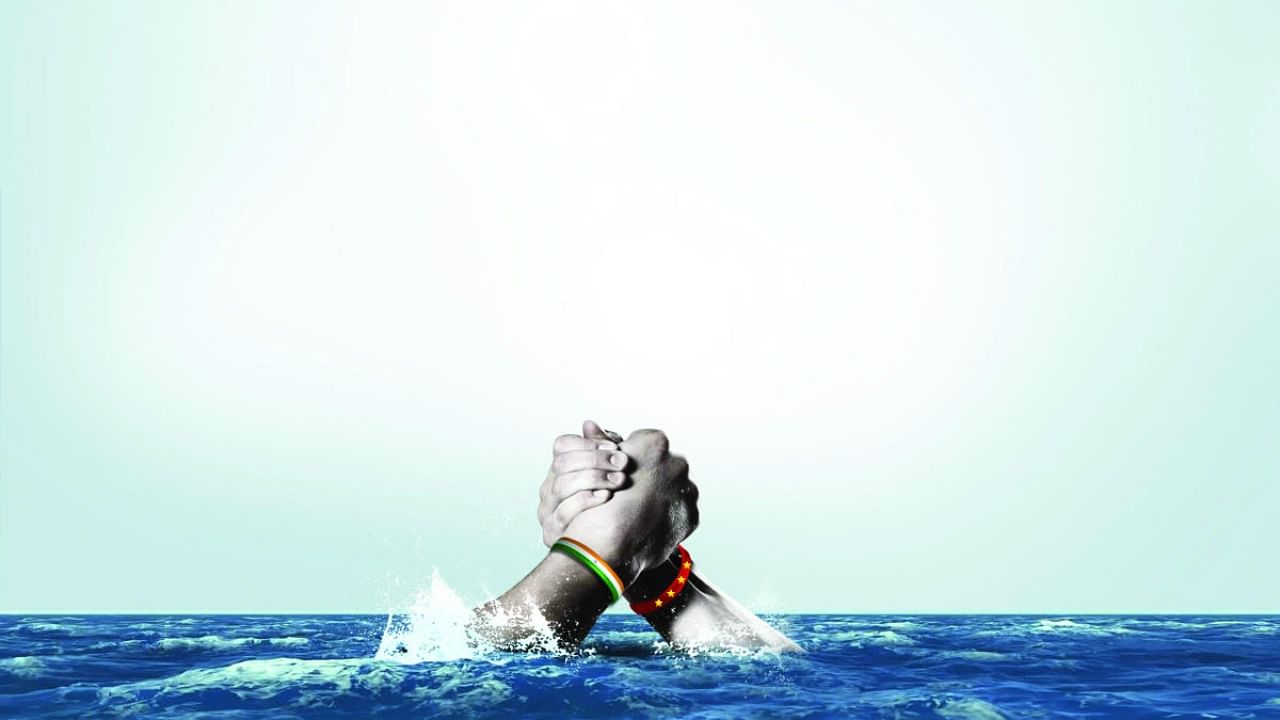
A political row has recently erupted in Mauritius over alleged involvement of an intelligence agency of India in an alleged snooping attempt. As the issue was discussed in the National Assembly of Mauritius, the Leader of the Opposition, Xavier Luc-Duval, also raised the issue of India’s role in developing Agaléga Islands of the Indian Ocean nation, obviously in a bid to add to the embarrassment of Prime Minister Pravind Jugnauth and his government.
Ever since India embarked on building infrastructure in Agaléga Islands of Mauritius after signing an agreement on March 11, 2015, the project often triggered controversies. Not only the opposition political parties expressed apprehension about India undermining the sovereignty of Mauritius by turning the islands into military bases, but also some NGOs and activists voiced concerns over its impact on the environment of the islands. Duval on July 28 asked in the National Assembly, if India would deploy military personnel or its P-8I maritime reconnaissance aircraft in the islands in Mauritius. Jugnauth replied that Mauritius would continue to have sovereignty over Agaléga Islands, which would in no way be militarized by India. He, however, also said that the India-Mauritius agreement on Agaléga Islands had a confidentiality clause and some aspects of it could not be revealed.
New Delhi of course has strategic interests in developing the Agaléga Islands in Mauritius, in view of their location near the key shipping lanes and China’s People’s Liberation Army Navy’s increasing forays in the Indian Ocean.
That is why India is still continuing to build infrastructure in Agaléga Islands, notwithstanding the controversy over the project and a jetty, an airstrip with a large hangar have purportedly been constructed so far.
But a similar project India was keen to build at Assumption Island in Seychelles has been stalled, as the Opposition did not help the Government of the island to ratify an agreement inked between the two nations even after the original pact inked on March 2015 was revised in January 2018. Wavel Ramkalawan, who had earlier led his Linyon Demokratik Seselwa (LDS) party to oppose the project, was elected as president in October 2020. New Delhi, however, reached out to his government and Prime Minister Narendra Modi also had a virtual summit with him last year. India is supporting a number of development projects in Seychelles, just as it , The project to develop the Assumption Island, however, remains stalled.
India is keen to set up the facility as a countermeasure to the military base China built in Djibouti, which is located on a global shipping point linking the Red Sea and the Suez Canal.
New Delhi, however, has been more successful in launching similar projects in Maldives, after Ibrahim Mohamed Solih took over as President in 2018 and adopted an “India First” policy, reversing his predecessor Yameen Abdul Gayoom’s policies, which were taking the island nation into China’s orbit of influence in the Indian Ocean region. India in February 2021 signed an agreement with Maldives to “develop, support and maintain” a harbour at Uthuru Thila Falhu naval base in the island nation. India also completed installation of a coastal radar system in Maldives in March this year. Gayoom’s Progressive Party of Maldives, along with some radical outfits, is continuing an “India-Out” campaign, which, many in New Delhi suspect, is backed by China – just like the resistance against India’s projects in Seychelles and Mauritius.
China’s Colombo Port City project in Sri Lanka remains a security concern for New Delhi, which, however, of late managed to clear the decks for Bharat Electronics Limited (BEL) to build a Maritime Rescue Coordination Centre in the island nation. India could recover the strategic space it had lost to China in the neighbouring nation. But New Delhi is now worried about the forthcoming visit of a reconnaissance ship of the Chinese People’s Liberation Army Navy to Hambantota Port, which Beijing’s debt-trap diplomacy had forced Sri Lanka to lease out to a state-owned company of the communist country itself.
